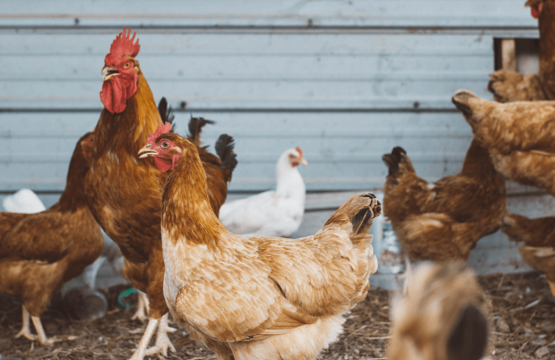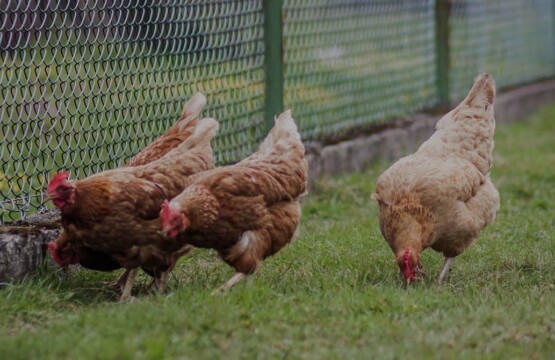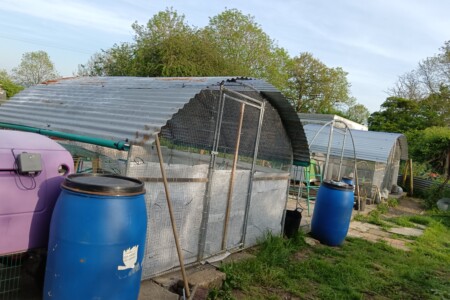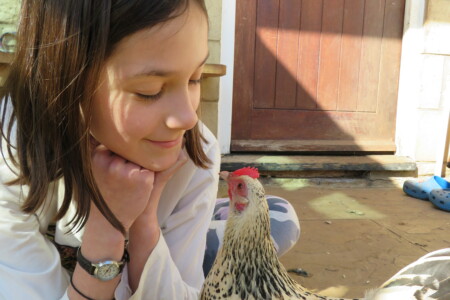Are chickens for me? The 10-minute guide
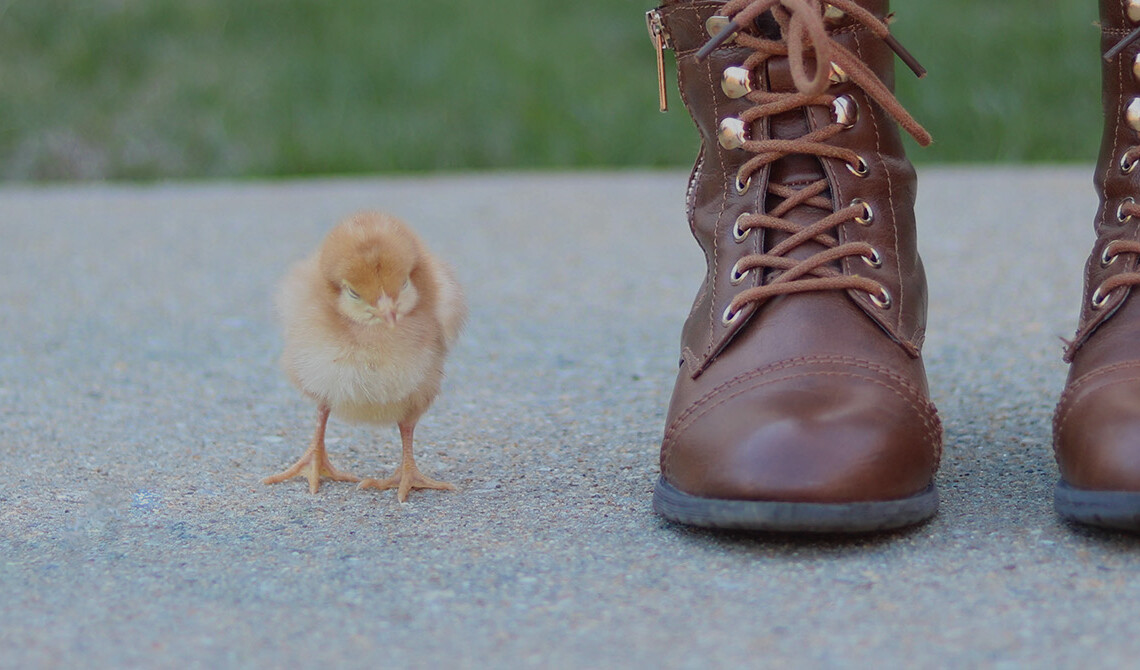
This guide will take you through some of the very basic requirements of chicken keeping. It will help you to decide whether this is something for you or not. We won’t be going into lots of detail or covering topics in any great depth, it is the ten-minute guide after all!
Cost of keeping chickens
This is a hobby that you could spend a lot of money on, but it doesn’t have to cost the earth. Once you have the initial set-up paid for, the ongoing costs of food and bedding materials are quite low (maybe £10 per month for 4 hens). When you compare this to the cost of feeding cats or dogs, it is significantly cheaper.
Chicken holiday boarding
We’re also pleased to say that chicken holiday boarding is also a lot “Cheep-er”, excuse the pun, than checking your animals into a cattery or kennel.
How much time do I need to spend with my chickens?
You will need to let the chickens out in the morning, collect the eggs and make sure they have enough food and fresh water for the day. Then in the evening close the hatch to secure them. You will also need to clean out the coops once a week (or more if necessary).
Who needs men anyway?
You do not need to get a rooster! Your chickens will be perfectly healthy and happy without one and they will still lay eggs, and, you can guarantee that the eggs won’t be fertilised.
Noisy neighbours?
As you may have heard, Roosters can make quite a racket. Hens, however, are fairly quiet and most people find their little happy clucking and cooing noises really relaxing. The only time hens can get a little noisy is while laying eggs. With that in mind, it’s worth checking with the neighbours that they’d be happy for you to keep them in your garden before you venture too far into chicken ownership.
Flock together for happiness.
Chickens are flock animals, they are happiest in a group, so you will need three chickens as a minimum.
Buying chickens
You can buy chickens from breeders at “Point of lay”. This means that they have just reached the age when they will start to lay their first eggs. Buying from a poultry auction can also be a very fun experience and you will see many varieties. You could also consider some “rescue hens” that come out of commercial egg farms. You get the chance to give these birds a decent life and they will reward you with eggs, and love. They tend to be very friendly and easy to keep.
Eggs
Chickens will start laying eggs at about 18-20 weeks after hatch and then lay about 1 egg a day (usually in the morning) for up to 2 years. After this they slow down in production and eventually stop altogether at maybe 4-5 years old. We like to call this their Henopause. They will still continue to give you enjoyment and could live until about 7 or 8 years old, sometimes more. So you might have to be prepared for a few egg-less years.
Egg eating
Your chickens might start eating their own eggs. It sounds strange, but it is not uncommon. Fortunately though there are many things you can try to get them out of this habit. Some of them are detailed in our helpful, and creatively named “How to stop your pet chickens eating their own eggs” blog.
Chicken names
One of the joys of keeping chickens is getting to know their individual personalities. So it can be quite a fun activity coming up with a name for your new ladies to identify them. Try our Betsy naming guide for ideas, and then you can read our instructions for how to train your chicken to recognise their own name. It’s a way to connect with your beloved pets and get even more enjoyment out of them.
Home, sweet home
Your chickens need to have somewhere to sleep at night, so they need a coop. It keeps them dry, warm and most importantly it keeps them safe from predators. Based on the area of the coop footprint, the UK Poultry society suggests having 1 square foot (0.09 square metres) of space per bird. This is a bit on the low side, so I would recommend going up a size (e.g. look to the size for 5 chickens if you want to house 4). You can find more information on coops in our Coop choosing guide. You can usually go by the guidance of the manufacturer for the size of the coop, but bigger is always better. Plastic coops are easier to keep clean and will probably outlast most wooden coops and they hold up in second-hand value. This is particularly true of the Omlet Eglu coops which are very much sought after in the second hand market.
Room to roam
It is important that your chickens have enough outdoor space. Some owners allow their chickens to roam free in their gardens. They will eat up all your slugs and snails… but be prepared for them eating everything else as well, they’re not fussy!
You might like to fence off a small patch of your garden, or you might like to have a wire mesh enclosed run for them. An enclosed run is the most secure and will mean that your chickens are protected from fox attacks during the day. Weirdly “chicken wire” isn’t recommended for security, but it will keep the chickens in. A determined hungry fox can bite through chicken wire in minutes. A heavier gauge of welded metal mesh is a better option, but more expensive. You can find strong wire runs, including walk-in runs, on the Omlet site. These include a skirt design that comes out along the ground to deter burrowing predators.
Poop
Chickens poop… a lot. You will need to clean their coop out once a week. So think of this when considering which coop to buy. You can put the poop into a compost bin as it makes great fertiliser when well-rotted. You may also need to poop-pick around your garden or in your run, depending on how you are keeping them. A rake, or cat poop scoop, is useful for this.
Predators of chickens
Foxes and badgers might try to eat your chickens. So consider the security of your coop and run, especially at night. For permanent runs it is advised to dig the wire mesh down into the ground by a foot, or to come out a foot flat along the ground to reduce the threat of burrowing animals.
Pests
Rats will love the plentiful supply of food that chickens scatter around. You can reduce this, and food waste, through a careful choice of feeder and cleaning up the area at night. Having your coop on elevated legs will also stop rats from making nests underneath your coops.
Red mite is a common type of pest that can frustrate chicken owners, they are carried by wild birds. It is a tiny brown mite that turns red after sucking the blood of your beloved chickens. In large numbers they can cause anaemia in your birds and can even kill them. There are lots of treatments and preventative measures you can take. Look out for our red-mite special blog, coming soon.
Your chickens can also catch lice. These are more easily treated than a red mite infestation, but they are still something that needs attention. If you prevent wild birds from getting into where your chickens live, and you have a tarp covering your run from above (to prevent wild bird droppings), then this should prevent most infestations. Covering the run is compulsory should the government declare an avian flu outbreak.
Sickness in chickens
Chickens can suffer from lots of different conditions. Generally, they will potter about seemingly quite content, then they might suddenly be dead the next day. It just happens. Do all dog and cat owners know all the conditions to look out for in their pets before they choose to buy them? Probably not, so don’t let this put you off. There are lots of things you can do to try to keep your chickens healthy. Conditions like worms, wry neck, sour crop, bumblefoot and scaly leg are not uncommon but can be preventable or treatable if you know what you’re looking for. You just need to do your research.
Broody hens
Your hens might turn “broody” at some point. This is a natural condition that describes when a chicken is ready to incubate eggs. When they go broody, they will stop laying eggs and might also drastically reduce food and water intake, so it’s something to watch out for. Check out our guide to broody hens for more detailed advice.
Chicken food
The simplest food you can give to your chickens are called layers pellets, these contain everything that your chickens need to be healthy and lay quality eggs with good shells. If you go into the bigger pet stores or farm stores you can buy a 20kg bag of layers for about £8. This will feed one chicken for 165 days (almost half a year!) or four chickens for 40 days.
Chicken grit
Grit is essential for chickens. They don’t have teeth so can’t grind their food up for digesting and absorbing nutrients. They rely on a primitive “gizzard” which holds little pieces of grit or small stones that they find when they’re foraging to help grind their food. Oyster shell grit is also soluble and helps add calcium to their diet for strong shells, you might like to use mixed grit which also contains insoluble pieces that will do their job for longer. Chickens will not over-eat grit, so as long as there is some around they will be fine.
Water
Chickens need to have a plentiful supply of clean water. There are lots of waterers available on the market at various price points. Plastic ones are cheap but can degrade in sunlight and eventually crack. Galvanised ones will last longer but you can’t use them if you want to supplement the chicken’s water with apple cider vinegar (ACV). Some owners use ACV in their chicken’s water, as a tonic for lots of ailments (mostly scientifically unproven). You would use about 1 tablespoon per gallon (4.5 litres), but make sure they also have a supply of clean water.
Chicken coop bedding
For cheap bedding wood shavings are perfectly acceptable, they cost about £8 for 20kg. Changing bedding once a week will mean that this will last a few months at least. Slightly more expensive is the ever popular Dengie Fresh bed. This bedding is made from chopped straw that has been dust-extracted and infused with pine oil which gives it antibacterial and antifungal properties (as well as smelling lovely). Chopped straw also composts faster than woodshavings so helps with your waste disposal problems.
While the Dengie Fresh bed is fab, we’d advise you to not use raw straw (mites can hide in them). Grass clippings are also a bad idea as they will eat it and it could cause sour crop. Shredded paper could be used but does get mushed up and is difficult to change sometimes, not really ideal.
Checking your chickens into a holiday hennel
We all need a break sometimes and if you need to get away then you’ll need to find someone to look after your chickens. After keeping them for a while you will understand the value of finding someone to look after them who has experience of chicken keeping. Find your local Chicken Hotel on Betsy and use our transport guide to find out the best way to transport them there.


